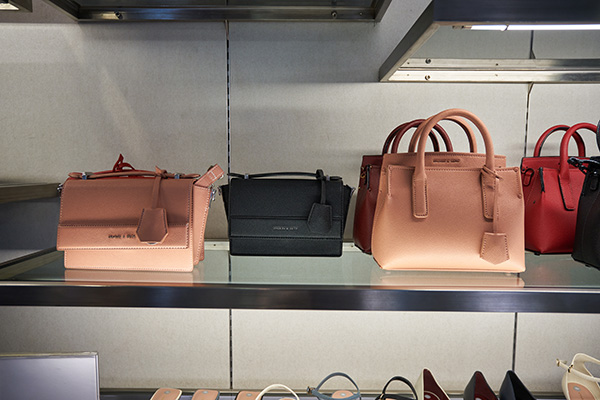In this day and age, what is considered as 'luxury'?
The meaning of the word "luxury" may seem simple but the things we define as "luxury" can be a whole different conversation.
The term became the topic of discussion after a Filipina teen in Singapore got mocked for calling a bag she recently got from Charles & Keith "luxury."
"Your comment spoke volumes on how ignorant you seem because of your wealth. To you, an $80 bag may not be a luxury. For me and my family, it is a lot. And I'm so grateful that my dad was able to get me one. He worked so hard for that money," Zoe Gabriel said about those who shamed her. "I can't believe I got hate for a bag I was so excited to have."
Since her video went viral, the meaning of "luxury" has become an ongoing debate online, with more users sympathizing with Zoe's story.
'Luxury is relative'
Going by the dictionary definition, luxury is something expensive that is pleasant to have but is not necessary. But as netizens have raised, luxury is relative to the lifestyle of each person.
The word will mean differently for someone who did not grow up with a lot compared to someone born with a silver spoon.
For one Facebook user commenting on the topic, they said luxury is defined as "blessings." "Anything beyond my basic needs are blessings," they wrote.
Another netizen echoed that "any material thing you purchased using your hard-earned money is luxury."

Similarly, one Twitter user shared that indulgences could mean the comforts that one person does not necessarily enjoy in their daily life.
"Sleep to the overworked is luxury. Free time to a single parent is luxury. Ice cream on a hot day is luxury. Jollibee to a balikbayan is luxury," netizen Gerry Cacanindin said.
"Enjoying hard-earned money is luxury. Buying onions in the PH is luxury. Luxury is relative," he added.
A kilogram of red onions (P350 to P550) is now more costly than meat products like a kilo of beef rump (P280 to P480) or a whole chicken (p180 to P220), according to a report by the Department of Agriculture.

Meanwhile, retail brand Luxe Shopping NL told PhilSTAR L!fe that luxury depends on the outlook of each customer or buyer.
"Our customers are mostly interested in Hermes, Chanel, Dior, Fendi, Gucci, Prada, etc. For them, these are luxury goods," the shop said "We also do cater mid-range brands such as Longchamp, Polene, Marc Jacobs."
Even for a personal shopper who handles 'luxury' items, the meaning is subjective.
"Luxury for me is associated with one’s possession of things or experiences that are worth an investment not only with money but also with how well time is spent and valued," Joy's Closet told L!fe.
This luxe item seller has provided designer pieces from Balenciaga to Kathryn Bernardo, as well as sold Saint Laurant shades and Yeezy sneakers to other customers.
"It doesn't matter if it is expensive or not, but more importantly, the brand serves the worth of your money for a long period of time," the Australia-based personal shopper added.
For a Taiwan-based user on Facebook, there is more to the discussion than the meaning of "luxury."
"Beyond the discussion of luxury brands is a much larger discussion about inequality in society that fuels misunderstandings and reduced empathy, and we need to be willing to transcend beyond such misunderstandings to advocate for a fairer and more equal system that can allow greater empathy and understanding to occur," Roy Yi Ling Ngerng wrote.

"When a society is unequal, it creates distance between people of different income classes. A wealthier person might not understand the hardship that a poorer person has to go through, to have to save every penny or to think hard about how each penny should be spent," he said.
The user goes on to say that wealth disparity issues can be solved by "allowing wages to grow fairly with the cost of living."
Evolution of 'luxury'
While the word "luxury" clearly has no one-size-fits-all definition, people's view of it changes along with the changing world. Experiencing a crisis warps how people perceive luxury, as Haus von Eden found. During these times, people tend to value quality over quantity, timelessness instead of short-lived trends, and accessibility.
"Investments are made more sustainably in terms of their longevity and their impact on people and the environment," the article stated.
For the younger generations, luxury does not serve as a status symbol as it might have and instead has taken a more holistic definition. Concepts like work-life balance, experiences, memberships, knowledge, and transparency are considered more as luxuries than material possessions.

